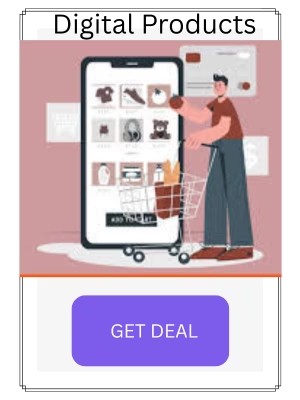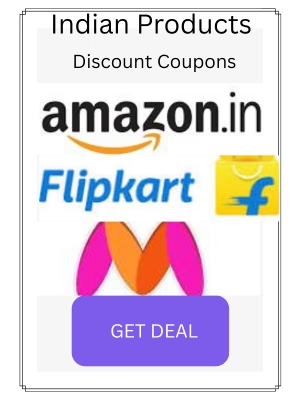Partners in women’s health play 7 key roles—from mentors to advocates—boosting wellness and empowerment. Discover how to find yours today!
Table of Contents
TogglePartners in women’s health: 7 Powerful Roles You Need
🌟 You Don’t Have to Go Through This Alone
Imagine facing menopause, a chronic disease diagnosis, or mental health challenges alone. The journey becomes exponentially harder without support. That’s why partners in women’s health—those dedicated individuals and systems—are vital lifelines. In this post, we explore 7 essential partner roles that can transform women’s health outcomes, supported by evidence, personal stories, and actionable tips.
⛔️ The Challenge: Fragmented Care and Isolation
Women often juggle multiple roles—daughter, caregiver, professional—while navigating health issues. Research highlights major gaps:
- Women’s health research is 75% underfunded, costing 75 million disability‑adjusted life years globally.
- Only 11% of NIH funding goes to women-centered research.
- Women receive less support in workplaces: 69% of employers recognize the need but stop short on action.
These gaps underscore why strategic partnerships matter—they fill structural voids and deliver tangible impact.
✅ Who Are the Partners in Women’s Health?
Here are the 7 powerful roles you need:
- Health Advocates
- Example: A supportive group that empowers you to ask deeper questions during checkups.
- Impact: Women are 2x more likely to voice concerns when accompanied.
- Healthcare Providers with Gender-Aware Training
- Providers trained in women’s symptoms—heart disease, PCOS—deliver more accurate and empathetic care.
- Tip: Ask if they’ve studied women-specific guidelines from NIH/ORWH.
- Peer Support Communities
- Connect with others facing your condition—online or in person.
- Loneliness worsens recovery; communities build resilience.
- Workplace Allies & Extras
- Employers offering flexible schedules, telehealth, focused benefits are key.
- CTA: Approach your HR about women’s health inclusions—start the change!
- Public-Private or Nonprofit Coalitions
- FemTech and Safe Health Apps
- Period trackers, fertility monitors offer autonomy—but watch for privacy.
- Choose apps with transparent data policies.
- Family & Caregiver Support
- Partners, children, extended family provide essential emotional and physical aid through chronic illness, aging, or reproductive transitions.
📊 Data That Matters
- 75 million DALYs lost annually due to women’s under-treated conditions.
- $1 trillion potential in global gains by closing the gap by 2040.
- 75% of employers intend to expand women’s benefits.
🎥 Video Resource
🧠 Featured-Snippet Answer
What are partners in women’s health?
Partners in women’s health include advocates, trained providers, peer support, workplace allies, nonprofit coalitions, responsible FemTech, and family. Each strengthens care and empowerment.
🤔 FAQs
Q1. How can I find a women-focused provider?
Look for OB‑GYNs or primary care doctors trained in women’s heart health, PCOS, menopause, or ORWH guidelines.
Q2. Are women’s health apps secure?
Not always. Only use apps that prioritize privacy, have no trackers, and use transparent data.
Q3. What workplace benefits help?
Telehealth, fertility care, mental health, maternity support—ask HR to adopt these.
Q4. How can I join peer support?
Search Facebook groups, local community centers, or forums specific to your health concern (diabetes, cancer, PCOS).
Q5. How do advocacy groups make a difference?
They fund research, educate providers, and support patients—example: WHAM’s campaigns increased NIH funding by $200M.
👩💬 Personal Experience
As a health writer and husband, I’ve witnessed firsthand how essential it is to have the right partners in a woman’s health journey. When my wife struggled with thyroid-related fatigue and cycle irregularities, it was a team of professionals and peer mentors who brought clarity and care. That experience inspired me to research and advocate more deeply for partners in women’s health—because no woman should have to navigate her health alone.
✍️ Call to Action
Take action today:
- Identify one key partner (provider, coworker, friend)
- Ask your employer for women’s health benefits
- Join a peer support group this week
- Review your health apps for privacy checks
- Support women’s health initiatives at the local/global levels
Explore More on Health & Wellness!
Check out these must-read blogs:
✅ 10 Healthy Meal Prep Ideas for Busy Professionals – Save time and eat healthier with these easy meal prep ideas!
✅ 30-Day Home Workout Plan PDF: Get Fit at Home – Stay active with this structured workout plan from the comfort of your home.
✅ How to Improve Your Gut Health Naturally – Discover science-backed ways to boost digestion and overall wellness.
✅ Health for Life: 7 Proven Ways to Stay Fit & Happy – Simple yet powerful strategies to maintain a healthy and joyful life.
✅ The Power of Meditation: How Daily Practice Transforms Your Mind & Body – Unlock inner peace and mental clarity through meditation.
✅ Yoga for Beginners: A Complete Guide to Starting Your Practice – Strengthen your body and calm your mind with this beginner-friendly yoga guide.
For more expert health tips, explore our Health & Fitness category and take a step toward a healthier, happier lifestyle today! 🚀💪
Top Deals
Partners in women’s health, Partners in women’s health, Partners in women’s health, Partners in women’s health, Partners in women’s health






